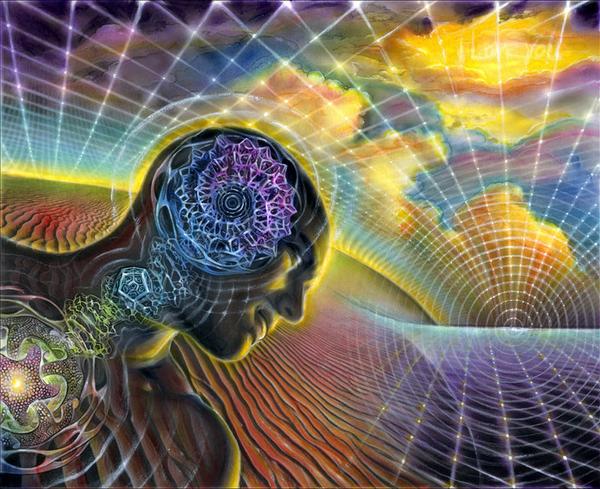How Developing A Smart Brain Can Encourage Lucid Dreams

If you saw ‘Inception’ last year, the film where the character played by Leo DiCaprio and his team were able explore their own dream world, walking up walls and bending buildings using the strength of their will, you’ll already be familiar with the concept of Lucid Dreaming. But – like most things in life – it’s not quite how it appears in the movies.
The Inception Effect – How A Smart Brain Can Encourage Immersive Lucid Dreams
Lucid dreaming is a unique dream state, midway between REM (rapid eye movement) and waking, where the dreamer is aware of being in a dream and is able to manipulate and control events within it. In a normal dream the rational part of the brain is switched off. During a lucid dream it is active, so you are conscious and in effect ‘wake up’. Lucid dreams are vivid and feel more ‘real’ than normal dreams.
Have you ever had the experience of turning off the alarm, getting out of bed and walking through your house, only to find – because something strange happens, like the rug in the hallway swallows your feet, or the door to the kitchen isn’t where you expect it – that you are actually still lying in bed, asleep? This type of ‘false awakening’ is quite common and for many people, it is their first taste of lucid dreaming. Some people actively develop this further.
Over the coming weeks i will explore in detail the specifics and the different role that specific brain vitamins found in some brain booster supplement formulas have in helping an individual develop the ultimate smart brain , one capable of creating deep immersive and mind expanding lucid dreaming.
The Benefits of Lucid Dreaming With A Smart Brain
So what – aside from stealing other people’s secrets ala ‘Inception’ – are the potential benefits of lucid dreaming? Because the unconscious mind is not very adept at distinguishing the difference between dream states and reality, dreams – lucid dreams in particular – may be used to counter the effects of trauma. At the Saybrook University in San Francisco, a professor of psychology is currently researching and developing ways of using dreams to treat post-traumatic stress in war veterans. People who have experienced trauma often relive these events as ‘nightmares’. Lucid dreaming allows them ‘change the ending’ of such dreams and this can reduce their levels of anxiety.
Lucid dreaming may also be a useful tool to enhance creativity and improve problem solving skills. Scientists, such as Einstein and Edison and artists, like the surrealist Salvador Dali have all used dream visualizations to tap into deeper levels of understanding and explore beyond their conscious limitations. People have reported using lucid dreams to face and conquer their fears by rehearsing future events, such as giving that big speech or flying that airplane. Or it could just be lots of fun!
Some Techniques & Approaches To Encourage Lucid Dreams and A Smart Brain
Here are some techniques you can try to enhance your ability to have lucid dreams:
- Keep a dream journal – improving your dream recall is an essential first step to developing the ultimate smart brain, one capable of lucid dreaming
- Practice ‘reality checking’ – frequently throughout the day ask yourself ‘am I dreaming?’ and choose a simple physical action to check the answer. For example, pinching your nose closed and trying to breathe. Or try pushing two fingers of one hand through the palm of the other. You know what to expect in ‘reality’ – if you do this while dreaming, anything can happen, and when it does, it can provide the Eureka moment that pushes you into lucidity
- Practice Meditation – among the other benefits of meditation such as deep relaxation and self awareness, it can enhance your ability to visualize. Guided meditations where you explore a secret garden or the like are particularly useful.
- WBTB (Wake Back To Bed) or CAT (Cycle Adjustment Technique) both of these techniques involve changing your sleep cycle and waking yourself when you would normally be having REM sleep.
- Research the benefits of natural vitamins for the brain that can encourage lucid dreaming states to occur .Try to look out for brain supplement formulas that contain L-Methionine or L-Arginie as well as L- tryptophan or Ginko Biloba.
- Eat cheese! Well no. In 2005 the British Cheese board conducted a study involving 200 volunteers in a week long experiment where they each ate 20g of cheese 30 minutes before going to sleep. Contrary to expectations 72% slept well, just over 2 in 3 remembered their dreams and none reported nightmares. This may in part due to the amino acid L-Tryptophan which has been shown to reduce stress and induce sleep, which occurs naturally in cheese

About the Author
Sam Jansen is a leading brain scientist, lawyer and author, studying neuroscience, social behaviors and the science of happiness.You can find him at Google

















Lucid Dreaming is awesome, but along with the good, I’ve experienced a couple extremely scarry dreams, they seem so real, so detailed … and then you wake